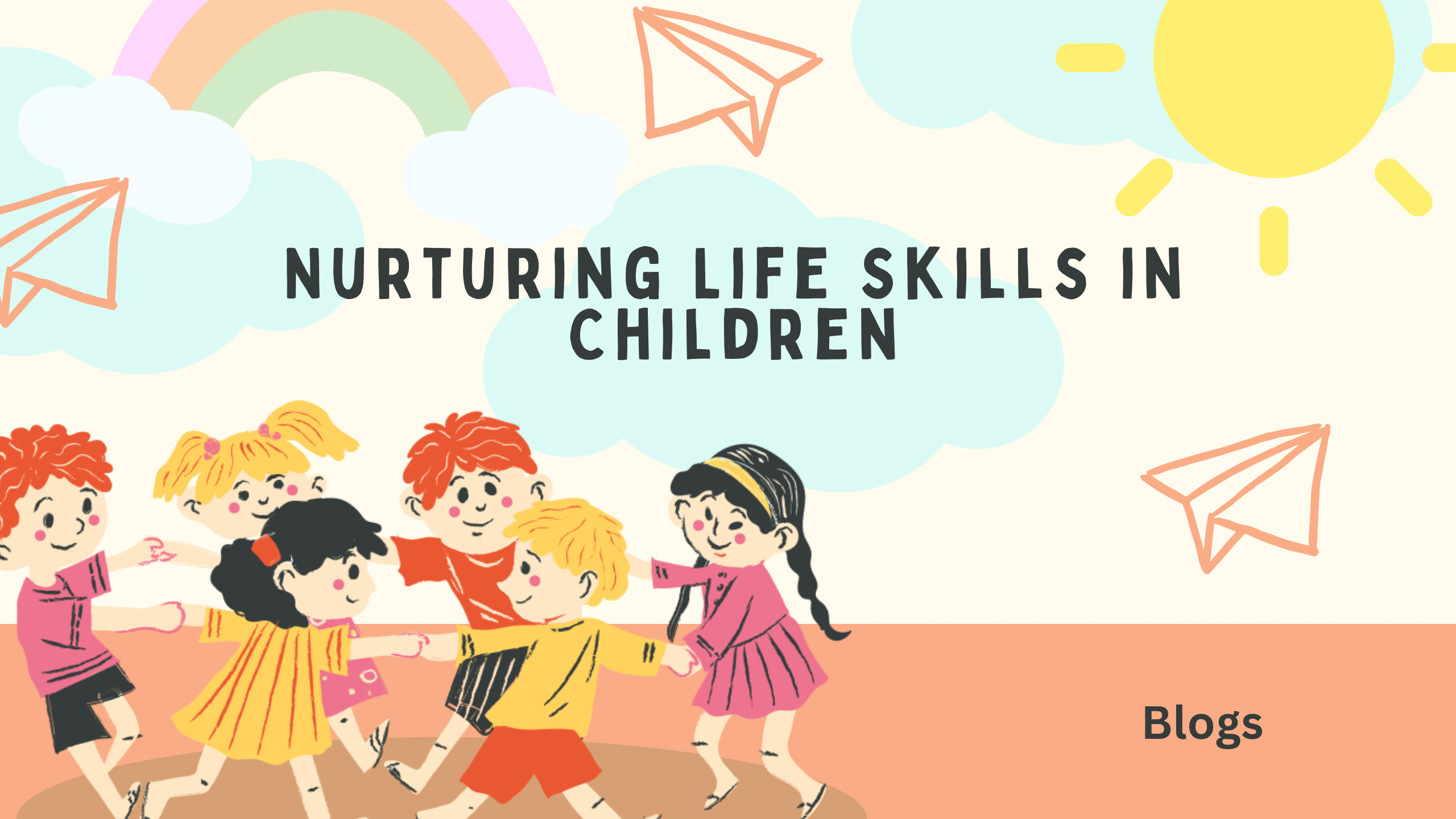Nurturing Life Skills in Children
In our rapidly evolving world, academic achievements alone are no longer sufficient to prepare children for the challenges they’ll face in the future. Equipping them with essential life skills becomes essential for holistic development. Recognizing the importance of life skills and integrating them into a child’s upbringing can be both rewarding and enjoyable for parents.
Why are they so important?
Life skills encompass a broad range of abilities that go beyond traditional academic knowledge. These skills include critical thinking, problem-solving, effective communication, decision-making, and emotional intelligence. With how dynamic the world is becoming, possessing these skills is crucial for success in personal as well as professional grounds.
Building Life Skills at Home:
- Communication Skills: “I love hearing about your day. Can you tell me one exciting thing that happened and how it made you feel?”
- Problem-solving: “We have a puzzle here. How about we work together to figure out the best way to solve it?”
- Decision-Making: “What do you think would be a good choice for tonight’s dinner? Let’s decide together!”
- Critical Thinking: “I noticed you thought carefully before answering that question. Your ability to think critically is impressive!”
- Time Management: “We have a few activities planned today. How about we make a schedule to ensure we have time for everything?”
Practical Ways for Parents:
- Family Meetings: Hold regular family meetings where everyone has a chance to speak. This encourages effective communication and collaboration.
Try saying “Let’s have a family meeting to discuss our plans for the week. Each person can share their thoughts.”
- Cooking Together: Involve children in meal preparation. This teaches them not only cooking skills but also teamwork and decision-making.
Try saying “What ingredients do you think will make our pasta extra delicious today? Let’s choose together.”
- Problem-Solving Games: Engage in games or activities that require problem-solving. This could be solving puzzles, playing strategy board games, or even creating DIY projects.
Try saying “This puzzle looks challenging. How about we tackle it together and celebrate when we solve it?”
- Journaling Feelings: Encourage children to express their feelings through journaling. This promotes self-reflection and emotional intelligence.
Try saying “Would you like a special journal to write down your thoughts and feelings? It can be our little secret space.”
- Daily Check-ins: Establish a routine of checking in with your child daily. This fosters a sense of security and opens the door for discussing challenges and successes.
Try saying “Before bedtime, let’s have our daily check-in. You can share anything you want, and I’ll listen.”
In preparing our children for the future, it is imperative to prioritize the development of life skills alongside academic achievements. By integrating these skills into daily activities at home, parents not only empower their children with essential tools for success but also create a nurturing and supportive environment for their overall growth.




